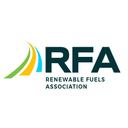Policy
The U.S. Department of Commerce's International Trade Administration has announced its Renewable Energy and Energy Efficiency Advisory Committee will hold a hybrid meeting on April 4 in Washington, D.C.
The Iowa House of Representatives on March 22 voted 73 to 20 in favor of a bill that would require CO2 pipeline companies to acquire at least 90 percent of route miles through voluntary deals before they could seek the use of eminent domain.
The U.S. Department of Commerce's International Trade Administration has announced its Renewable Energy and Energy Efficiency Advisory Committee will hold a hybrid meeting on April 4 in Washington, D.C.
The USGC and the Industrial Association of Sugar Cane of Panama signed an ethanol MOU during a regional seminar held by USGS in Panama City on March 21-22 to discuss the benefits and challenges of ethanol blending in the region.
Ethanol Producer Magazine announced this week the preliminary agenda for the 2023 International Fuel Ethanol Workshop & Expo (FEW) taking place June 12-14, 2023 at the CHI Health Center in Omaha, Nebraska.
The USGC recently partnered with Turner, Mason & Company, a leading energy research and consulting firm, to conduct a study that quantifies the economic and strategic benefits of blending ethanol in various countries.
If the U.S. EPA decides to defer implementation of year-round E15 petitions from eight state governors until 2024, then the agency must exercise its authority to issue emergency waivers allowing continued sales of E15 this summer, according to RFA.
Sen. Pete Ricketts, R-Neb., pressed U.S. EPA Administrator Michael Regan on the agency's proposed biomass-based diesel RFS RVOs and its delayed action on a Midwest E15 petition during a March 22 Senate committee hearing.
2023 International Fuel Ethanol Workshop & Expo releases agenda
Ethanol Producer Magazine announced this week the preliminary agenda for the 2023 International Fuel Ethanol Workshop & Expo (FEW) taking place June 12-14, 2023 at the CHI Health Center in Omaha, Nebraska.
Sen. Pete Ricketts, R-Neb., pressed U.S. EPA Administrator Michael Regan on the agency's proposed biomass-based diesel RFS RVOs and its delayed action on a Midwest E15 petition during a March 22 Senate committee hearing.
Modeling ethanol's carbon emissions derived from corn, often referred to as “Field to Wheels,� does not capture the benefits of emissions reductions created by changes to the finished gasoline fuel blend (chemistry) or improved vehicle efficiency.
Sens. Chuck Grassley, R-Iowa; Amy Klobuchar, D-Minn.; Joni Ernst, R-Iowa; and Tammy Duckworth, D-Ill., on March 22 reintroduced the Next Generation Fuel Act, a bill that aims to establish a high-octane, low-carbon fuel standard.
The U.S. EPA in March approved a fuel pathway filed by Martinez Renewables LLC that will allow the California-based biorefinery to generate D5 RINs under the RFS for LPG made from biogenic waste FOG via a hydrotreating process.
The U.S. Department of Energy on March 21 announced $14 million in funding to support and optimize the production of affordable biofuels and biochemicals while significantly reducing carbon emissions.
President Joe Biden has proclaimed March 21 as National Agriculture Day. Agriculture Secretary Tom Vilsack and EPA Administrator Michael Regan issued comments recognizing the ag community for its work to provide the U.S. with food, fuel and fiber.
Iowa Gov. Kim Reynolds, Nebraska Gov. Jim Pillen, Minnesota Gov. Tim Walz, and South Dakota Gov. Kristi Noem on March 21 sent U.S. EPA Administrator Michael Regan a letter urging the agency to allow E15 sales during the 2023 summer driving season.
The ethanol industry urged the U.S. EPA to to reinstate the ability to sell E15 year-round ahead of the 2023 summer driving season during a March 21 hearing held to gather comments on a rulemaking to allow year-round E15 in eight Midwest states.
The U.S. Department of Energy on March 21 announced $14 million in funding to support and optimize the production of affordable biofuels and biochemicals while significantly reducing carbon emissions.
President Joe Biden has proclaimed March 21 as National Agriculture Day. Agriculture Secretary Tom Vilsack and EPA Administrator Michael Regan issued comments recognizing the ag community for it work to provide the U.S. with food, fuel and fiber.
Minnesota ethanol industry contributes $2.7B to state's economy
Minnesota's ethanol industry contributed $2.7 billion to the state's gross domestic product (GDP) in 2022, according to a new study by the University of Minnesota Extension that was sponsored by the Minnesota Bio-Fuels Association.
Legislation recently introduced in the Nebraska Legislature aims to boost the availability of E15 fuel by introducing new requirements for fuel retailers and creating a grant program to support necessary upgrades at fuel retail locations.
The U.S. DOE has announced $590 million to renew its four existing Bioenergy Research Centers. This funding will help support the DOE's research into the next generation of sustainable, cost-effective bioproducts and bioenergy.
The USDA recently concluded the latest round of its Higher Blends Infrastructure Incentive Program, and once again the RFA helped dozens of retailers apply for, and win, grant awards that will expand the availability of higher ethanol blends.
NREL: Regional analysis can help accelerate deployment of SAF
Reserachers at the U.S. Department of Energy's National Renewable Energy Laboratory are evaluating the regional variables associated with deploying sustainable aviation fuel (SAF), including a case study of Chicago O'Hare International Airport.
DOE announces $590 million to increase bioenergy research
The U.S. DOE has announced $590 million to renew its four existing Bioenergy Research Centers. This funding will help support the DOE's research into the next generation of sustainable, cost-effective bioproducts and bioenergy.
In comments submitted to the California Air Resources Board on potential changes to the state's Low Carbon Fuel Standard, the RFA identified several areas in CARB's proposal and underlying analysis that need improvement.
Growth Energy CEO Emily Skor kicked off Growth Energy's 14th annual Executive Leadership Conference with a speech that emphasized the hard-won progress made last year and ongoing innovation by the group's members.
Sales of E85 flex fuel in California in 2022 surged 66 percent over 2021 and more than doubled the pre-pandemic record set in 2019, according to new data released by the California Air Resources Board.
The U.S. EPA on March 16 released updated data showing that one small refinery exemption (SRE) petition has been filed under the RFS over the past month. A total of 25 SRE petitions are now pending, up from 24 that were pending as of mid-February.
The U.S. EPA on March 16 released data showing that nearly 1.72 billion renewable identification number (RINs) were generated under the Renewable Fuel Standard in February, up from 1.54 billion generated during the same month of 2022.
Advertisement
Advertisement



































